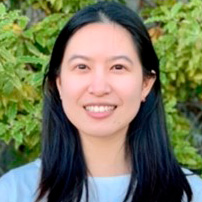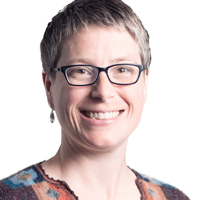Women in Science Day 2022 interview: Tayo Fakunle

In our Women in STEM interview series, we highlight inspirational and influential women and woman-identifying individuals in the fields of science and engineering to learn about their backgrounds, how they got to where they are, and what obstacles they have overcome to get there. Today, in celebration of the International Day of Women and Girls in Science 2022, we are joined by Tayo Fakunle, PhD, MPH, MBA, Senior Medical Science Liaison at Covis Pharma, and founder of the social venture I am Pluri/I am Pluripotent.
Dr. Fakunle has experience in regenerative medicine spanning scientific research, public health, and medical affairs. She is expanding her experience into respiratory medicine as a senior medical science liaison with Covis Pharma, a global specialty pharmaceuticals company. She has an undergraduate degree in chemical engineering, a doctoral degree in interdisciplinary cell and molecular biology, postdoctoral training in bioengineering and regenerative medicine, a master’s in public health, and a master’s in business administration. She is a Nigerian American Citizen and proud of her heritage as a woman from the Yoruba tribe. In addition to her career as a medical science liaison, she is developing an afterschool STEM program. Read on to learn more about our guest, Tayo Fakunle.
For me, learning, teaching, and communicating STEM is like having a piece of chocolate cake or your favorite dessert and sharing it with others for mutual enjoyment."
Please introduce yourself and the STEM program you founded: I am Pluripotent!
My name is Tayo, and I have a career as a medical science liaison working in the pharmaceutical industry. In addition, I am developing a social venture called I am Pluripotent, or I am Pluri, for short. I am Pluri aims to strengthen the pipeline for a diverse STEM workforce by engaging youth in fun and creative after-school STEM experiences. Women, persons with disabilities, and minority groups are underrepresented in the STEM workforce. Currently, 69% of workers in STEM careers are white. Other groups have smaller percentages of STEM workers: Asians (13%), blacks (9%), and Hispanics (7%). Even though women constitute almost 50% of the labor market, only 28% of workers in STEM careers are women. It is projected that 80% of future careers will require some STEM skills. Providing more opportunities to engage in science earlier than college through after-school programs fosters educational attainment in college and strengthen the pipeline for a diverse STEM workforce.

Tayo Fakunle, PhD, MPH, MBA
You have a very impressive educational background with several graduate-level degrees. What was your motivation behind continuing higher education?
The biggest motivation behind my continuing education is my desire to learn and the limitless opportunities available to pursue an education in the USA. I am a Nigerian American Citizen and education is highly valued in my culture and my family. Nigerian Americans are highly educated, with 29% of Nigerian Americans having a master's degree, PhD, or an advanced professional degree compared to 11% of the population overall. In Nigeria, growing up, I was surrounded by books, learning, and highly educated people. My dad was a physician and professor of medicine, my mother a pharmacist. We lived on the university campus where all our neighbors were professors. Under the influence of this environment, I developed a joy of learning.
There is so much opportunity in the USA to learn and grow regardless of your age and gender, and you are not stuck to only one path or one type of degree. I pursued multiple degrees due to desire and opportunity. My undergraduate degree was in chemical engineering, but I decided early on that the path was not for me. I decided to pursue a doctoral degree in cell and molecular biology, and I loved the coursework and the focus of my research. Pursuing my interests in the business and socio-ecological aspects of health and STEM, I earned master's degrees in public health and business.
Why is it important for you to translate your education and research background into learning opportunities for younger generations?
Translating my unique career experience as an immigrant black woman in healthcare, science, and engineering to inspire diverse people to pursue STEM careers is a way for me to create value for others through my own story. Many years ago, I read Bill Clinton's book entitled: Giving: How Each of Us Can Change the World. I was inspired by the notion that each of us has something to give back to society regardless of our income, status, and background. I have a passion for STEM, and I started to think about how I could use my passion to help others in every facet of my life on and off the job. It is long and tortuous full of trials and tribulations, but you should never give up in continuous pursuit of your passion and highest potential.
What is one professional risk you've taken that has paid off?
The biggest professional risks I have taken were taking time to pursue more learning when I was not very financially prepared to do so and halting jobs in the short term for long-term career gain. A job is temporary, but a career is long-term. Those choices paid off because I obtained degrees that enhance my mind and career trajectory in the way I want. I feel complete satisfaction that I have pursued these priceless learning opportunities.
What are some of the things that you do for fun that keep you passionate and enthusiastic about your career?
One example: over the holidays, I visited Biosphere 2, located near Tucson, Arizona. It is an artificial ecosystem used for research on climate change and sustainability. In an experiment to explore the possibility of space colonies, scientists lived and worked in this closed ecosystem for two years. Taking a tour of the biosphere, one learns about interdisciplinary topics in STEM that are highly relevant to everyday life. For example, I learned how they designed a water collection system, grew their food, and performed other tasks necessary to maintain life in this closed ecosystem. Excited, I thought about making a lesson plan for children based on this experience. Generally, I am excited to consider this question: how do I communicate the science around me appropriately for the intended audience, both for children and adults? I consider this question for fun, as part of my social venture, and as part of my work in my career as a medical science liaison.
I enjoy learning information in STEM and sharing it with others to create value. For me, learning, teaching, and communicating STEM is like having a piece of chocolate cake or your favorite dessert and sharing it with others for mutual enjoyment.
Could you tell us about a difficult educational or career experience and how you navigated it?
When I was an undergraduate, I developed health problems, and my academics suffered as a result. When my grades dropped severely, I was very worried that my future was over. I had moved to the USA for my undergraduate degree, and I was disappointed in myself. I had a false belief that successful people have excellent grades all their lives, always make the right decision, and have a straight path in their careers. Then I read a book called How to Be Like Women of Influence: Life Lessons from 20 of the Greatest. I was especially inspired by the story of Dr. Alexa Irene Canady, who was the first black female neurosurgeon in the USA. However, her career path was far from straight, filled with ups and downs. As an undergraduate, she went on academic probation. I was amazed that she could bounce back to become a highly renowned surgeon. Her father and undergraduate minority STEM research opportunities played vital roles in her recovery and success in STEM. I have also always had supportive family and friends. Several of my brothers attended the same university as me. My parents and other family living across the ocean supported me by phone, and my father came to visit often. This superior family support helped me the most to get through the rough patches when I was an undergraduate and always. In addition, I had supportive professors and mentors and the support of student and faith organizations.
How can our readers support or get involved with your current or future initiatives?
I am Pluripotent after-school program is a venture of Ilera, LLC, partnering with IFASEMB, a 501(c)3 Nonprofit. We are affiliated with the Venture Devils Program of Arizona State University.
We launched I am Pluripotent as a pilot in 2021, and we will continue to offer programs every summer. We seek funding and partners to develop and scale the program to make it available to more students. My vision is to create a scalable workflow for developing experiential learning from the careers of diverse women in STEM. In the future, I plan to make the program available in my home country of Nigeria and other African countries. You can check out our website for information about our activities at https://iampluri.com. If you are interested in getting involved, please email me at iampluri2@gmail.com.
Thank you so much for taking the time to speak with us today! We loved learning about your inspiring STEM journey and we're really looking forward to seeing new developments from I am Pluripotent.
Takara Bio USA, Inc.
United States/Canada: +1.800.662.2566 • Asia Pacific: +1.650.919.7300 • Europe: +33.(0)1.3904.6880 • Japan: +81.(0)77.565.6999
FOR RESEARCH USE ONLY. NOT FOR USE IN DIAGNOSTIC PROCEDURES. © 2025 Takara Bio Inc. All Rights Reserved. All trademarks are the property of Takara Bio Inc. or its affiliate(s) in the U.S. and/or other countries or their respective owners. Certain trademarks may not be registered in all jurisdictions. Additional product, intellectual property, and restricted use information is available at takarabio.com.





